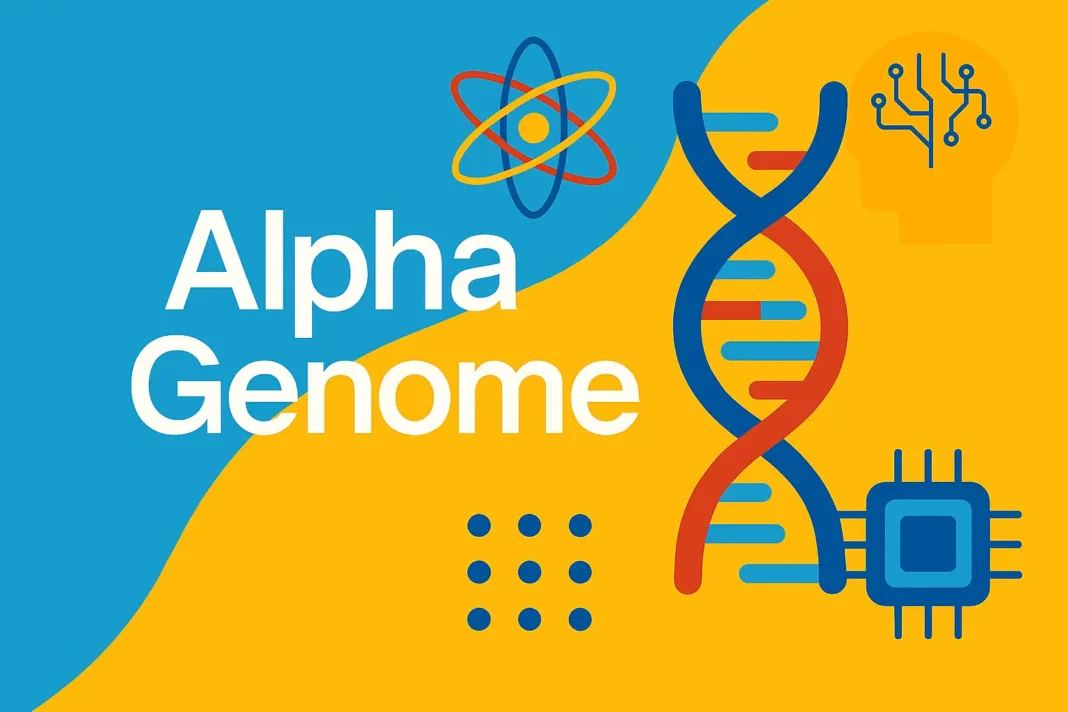In June 2025, Google DeepMind unveiled Alpha Genome, a groundbreaking artificial intelligence model designed to decode the regulatory code of DNA with unprecedented precision. Within the first 100 words of this article, it’s clear: This model is not just another genomics tool-it’s a seismic shift in how scientists interpret the human genome. By integrating long-range sequence context with base-pair resolution, Alpha Genome offers a unified architecture capable of predicting how genetic variants influence gene regulation across the entire genome. [1] [2]
Understanding Alpha Genome: A New Era in Genomic AI
Alpha Genome is a multimodal AI model that processes up to 1 million base pairs of DNA and delivers high-resolution predictions across thousands of molecular modalities. These include gene expression, chromatin accessibility, transcription start sites, RNA splicing, and protein binding. [1] [3]
Unlike previous models that focused on isolated tasks, it provides a comprehensive view of gene regulation. It builds on DeepMind’s earlier models like Enformer and complements AlphaMissense, which specializes in protein-coding regions. Alpha Genome, however, tackles the vast non-coding regions-the so-called “dark matter” of the genome that comprises 98% of our DNA. [2]
Key Features:
- Long-range context: Analyzes up to 1 million DNA letters.
- Base-pair resolution: Captures fine-grained biological details.
- Multimodal predictions: Covers diverse gene regulatory properties.
- Efficient variant scoring: Predicts mutation effects in seconds.
The Science Behind Alpha Genome: Institutions and Data Sources
Alpha Genome’s predictive power stems from its training on rich multi-omic datasets sourced from leading research consortia:
- ENCODE Project: Mapping functional elements in the genome.
- GTEx Consortium: Studying gene expression across tissues.
- 4D Nucleome: Exploring genome architecture in space and time.
- FANTOM5: Profiling transcriptional activity across cell types. [1] [3]
These datasets enabled Alpha Genome to learn from hundreds of human and mouse cell types, making it one of the most versatile models in computational genomics. The model’s architecture combines convolutional neural networks (CNNs) for local motif detection and transformers for long-range interactions, trained on Tensor Processing Units (TPUs) for efficiency. [1] [3]
Alpha Genome in Action: Predicting Disease and Mutation Impact
One of Alpha Genome’s most promising applications is in variant effect prediction. In a recent study, DeepMind researchers applied the model to mutations associated with leukaemia. It accurately predicted that non-coding mutations activated a nearby oncogene-a breakthrough in understanding cancer biology. [2]
This sensitivity to single-DNA-letter changes allows researchers to:
- Predict consequences of mutations.
- Interpret genome-wide association studies (GWAS).
- Explore regulatory mechanisms in complex diseases.
As Stanford University’s Anshul Kundaje noted, “It is a genuine improvement in pretty much all current state-of-the-art sequence-to-function models”. [2]
Alpha Genome API: Democratizing Genomic Research
To accelerate scientific discovery, DeepMind released the Alpha Genome API for non-commercial research. Available on GitHub, the API allows researchers to:
- Access multimodal predictions.
- Score variants across tissues.
- Visualize outputs using built-in libraries.
The API supports small to medium-scale analyses, making it ideal for academic labs and biotech startups. Tutorials, documentation, and community support ensure accessibility for users at all levels. [4]
Future Implications: Toward Personalized Medicine and Beyond
Alpha Genome’s unified approach opens doors to personalized medicine, where treatments are tailored based on individual genetic profiles. By interpreting non-coding regions, it could:
- Identify novel drug targets.
- Predict adverse drug reactions.
- Guide gene therapy strategies.
Moreover, DeepMind plans to extend it to new species, clinical tasks, and fine-tuned applications, signaling a broader integration of AI in life sciences.
People Also Asked
What is Alpha Genome by Google DeepMind?
It is an AI model that predicts how genetic variants affect gene regulation across the genome, including non-coding regions. [1]
How does Alpha Genome differ from AlphaFold?
While AlphaFold predicts protein structures, Alpha Genome interprets DNA sequences and their regulatory functions. [2]
Can Alpha Genome predict disease-causing mutations?
Yes, it can score the impact of single-letter DNA changes and has been used to study mutations in leukaemia. [2]
Is Alpha Genome available for public use?
Yes, an API is available for non-commercial research via GitHub. [4]
Conclusion: A Unified Model for Genomic Insight
Alpha Genome represents a paradigm shift in genomics, offering a single, scalable model that integrates diverse biological modalities. Its ability to interpret vast stretches of DNA with base-pair precision is already reshaping how scientists understand gene regulation and disease.
As Pushmeet Kohli, Head of AI for Science at DeepMind, aptly stated:
“This is one of the most fundamental problems not just in biology – in all of science”. [2]
With Alpha Genome, the future of genetics is not just readable-it’s predictable.


